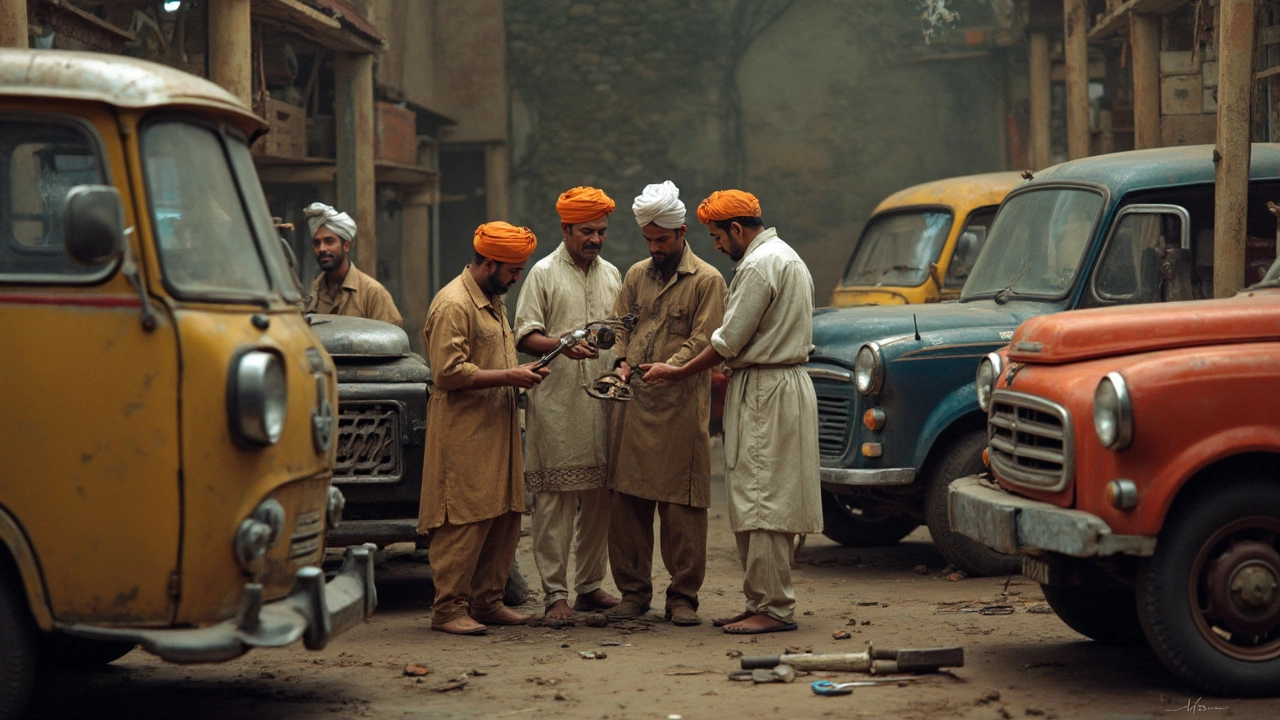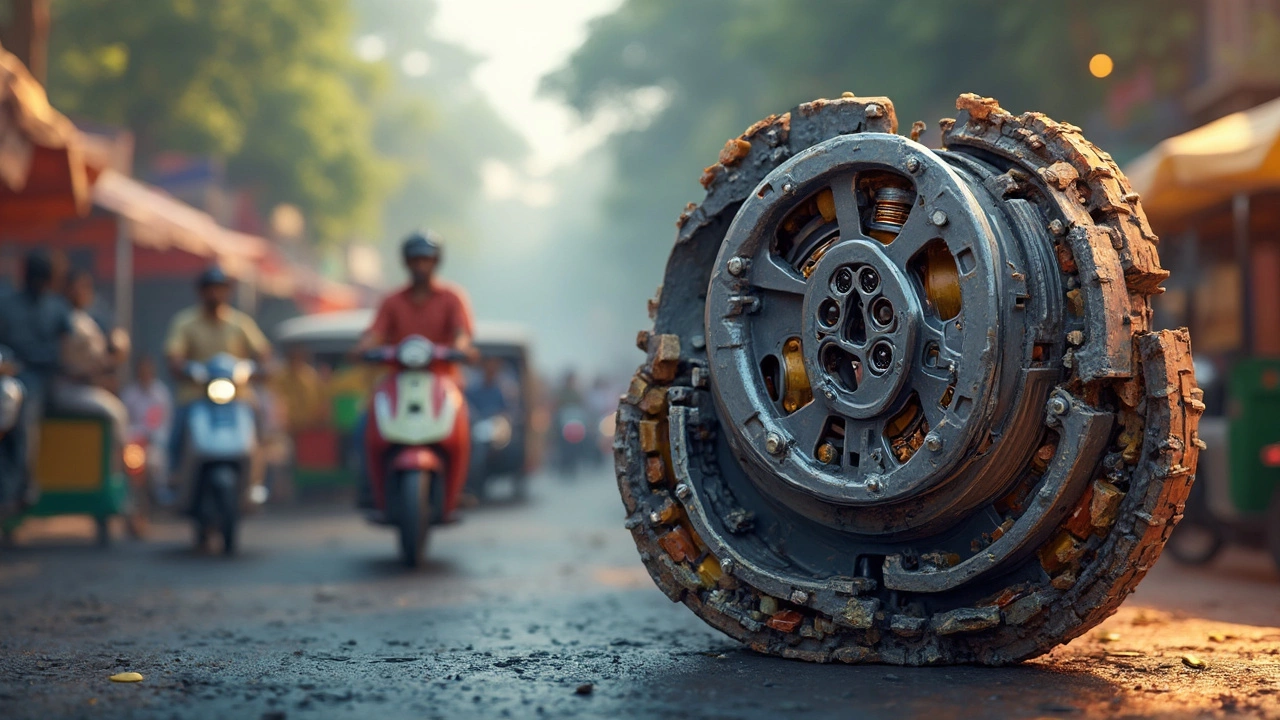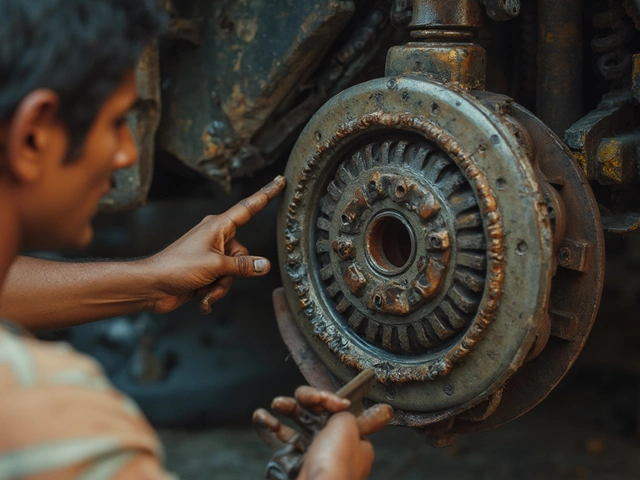Ever find yourself pondering just how long your car's clutch is supposed to last? You're not alone. It's a common question among drivers who want to keep their vehicles running smoothly without any sudden, costly surprises. So, let's cut to the chase: a clutch can generally last anywhere from 30,000 to 100,000 miles. But here's the kicker – its life largely depends on how, where, and what you drive.
Aggressive driving can burn out a clutch faster than you can say 'manual transmission.' Constant stop-and-go traffic doesn't help either, acting like your clutch's worst enemy by making it work overtime. And if you're cruising around hills all the time, that’s even more wear and tear.
Now, don't hit the panic button just yet. There are signs that your clutch might need some love and attention. Slippage, a spongy pedal, or strange noises could all mean it's time for a check-up.
- Understanding Clutch Lifespan
- Factors That Affect Longevity
- Signs Your Clutch Needs Attention
- Practical Maintenance Tips
- Clutch Replacement Considerations
- Extending Your Clutch’s Life
Understanding Clutch Lifespan
When you're talking about a clutch's lifespan, think of it like your favorite pair of sneakers. The more and harder you use them, the quicker they'll wear out. The same goes for clutches. While a clutch is designed to last on average between 30,000 to 100,000 miles, it's not a one-size-fits-all figure.
The lifespan varies widely. Imagine driving in the city every day, stopping and starting constantly versus cruising along open highways. City driving wears out clutches much faster. For the highway cruisers, mileage can stretch longer.
If you're into numbers, here's a handy comparison:
| Driving Condition | Average Clutch Life Mileage |
|---|---|
| City Driving | 30,000 - 50,000 miles |
| Combined City and Highway Driving | 50,000 - 80,000 miles |
| Highway Driving | 80,000 - 100,000 miles |
But hang on, it's not just where you drive, it's also how. Driving habits play a huge role in clutch lifespan. If you have a heavy foot or keep your foot resting on the clutch pedal, that's like wearing out those sneakers even faster.
Remember, each car model and clutch is different. Sports cars might have clutches that initially wear out faster due to high performance, but also might be built tougher to withstand such use. On the flip side, a regular commuter sedan may have a clutch design that optimizes for smoother daily drives.
Knowing these factors can help you plan better and hopefully stretch out that clutch life, keeping your ride smooth and your wallet happier.
Factors That Affect Longevity
So, what really decides how long your clutch sticks around? There are a bunch of factors at play. First off, let's chat about driving style. If you're one of those folks who loves quick starts and rapid gear shifts, your clutch is working harder than it needs to. Smooth and steady wins the race when it comes to keeping that part of your car happy.
Environmental conditions also play a big role. If you're constantly stuck in city traffic, your clutch is busy engaging and disengaging – not to mention how much work it does on those pesky inclines. Living in a hilly area? Sayanora to your clutch's long life if you're not treating it right while going uphill.
Do you know the vehicle type is a factor too? A sporty car's clutch might not last as long as your typical family sedan's. High-performance cars are built for speed, and sometimes that means a shorter lifespan for parts like your clutch.
Maintenance is also key. Regular check-ups can spot wear and tear before things go haywire. Pay attention to how your pedal feels – it can be a great early warning system.
Here's a fun little data nugget for you:
| Factor | Impact on Clutch Lifespan |
|---|---|
| Driving Style | High |
| Traffic Conditions | Moderate to High |
| Climate | Moderate |
| Vehicle Type | Moderate |
| Regular Maintenance | High |
This table gives you a quick snapshot of who's really pulling the strings in the life of your clutch. Mind these, and you'll be well on the way to maximizing that mileage!
Signs Your Clutch Needs Attention
Wondering if your clutch is giving you a silent cry for help? Catching clutch problems early can save you a ton of hassle and money. Here are some telltale signs that your clutch might need a little love.
Strange Noises: Hear weird noises when you press down on the clutch pedal? Grinding or squealing sounds can mean there’s something seriously wrong. Don't ignore these sounds, as they might indicate that some components are worn out.
Spongy or Soft Pedal: If you're pressing the clutch pedal and it feels like stepping on a squishy sponge, something’s likely off. A soft pedal can mean there's air in the hydraulic line or that some parts are misaligned.
Clutch Slippage: This one’s a biggie. If your engine revs up, but the car barely moves, that’s a sign your clutch is slipping. It often happens when the clutch plate loses grip. Too much slippage can wear out other parts, leading to more expensive repairs.
Burning Smell: Ever notice a burning smell like tires or something akin when driving? That smell often points to the clutch overheating. It can result from constant slippage or riding the clutch, leading to premature wear.
Difficulty Shifting Gears: If you feel resistance when trying to shift gears, your clutch might be to blame. Hard shifts can mean the clutch isn’t fully engaging or disengaging because of wear.
- Poor Acceleration: If your car feels sluggish and takes a while to get going, the clutch could be losing its grip.
- Changes in Clutch Engagement Point: If the clutch suddenly begins engaging closer to the floor or higher up than usual, it could signal wear.
If you notice any of these signs, it’s smart to have a mechanic check it out sooner rather than later. Don’t give those symptoms a chance to snowball into more significant clutch problems that cost more to fix.

Practical Maintenance Tips
Keeping your clutch in good shape is a lot like taking care of your health. A little maintenance can go a long way to extend the clutch lifespan. Here are some down-to-earth tips that can save you a bundle on clutch replacements and keep your ride smooth:
- Stop Riding the Clutch: A common bad habit is resting your foot on the clutch pedal. This might seem minor, but it actually keeps the clutch from fully engaging, leading to unnecessary wear and tear.
- Mind Your Gear Changes: Don’t hold the clutch in at stoplights. Instead, shift into neutral. Keeping the clutch engaged puts extra pressure on components.
- Avoid Excessive Clutch Use: In heavy traffic, try to keep a steady pace rather than constant stopping and starting. If possible, leave more space between you and the car ahead to minimize clutch use.
- Regular Check-ups: Just like you’d go for health check-ups, your car needs them too. Get your clutch checked during regular service visits to catch early warning signs of wear.
- Don’t Overload: Carrying heavy loads can stress your clutch. Try to avoid this whenever possible, so you don’t cut into its clutch life.
Driving smoothly and treating your clutch with care isn’t just good for your car. It’s also good for your wallet. Staying mindful of these habits can drastically extend the life of your clutch and improve your driving experience.
Clutch Replacement Considerations
Thinking about replacing your clutch? It’s a decision that can impact your wallet pretty seriously, so understanding the ins and outs is key. First off, let’s talk about cost. An average clutch replacement can set you back anywhere from $500 to $1,200. Ouch, right? The price depends on the type of vehicle and whether you're getting it done at a dealership or an independent shop.
Before you rush into it, consider if your clutch is truly at the end of its rope. Sometimes what feels like a clutch issue could be something else entirely. It’s worth having a reputable mechanic take a look to diagnose the issue properly.
If you’re sure a replacement is needed, consider the parts involved. A clutch kit typically includes the clutch disc, pressure plate, and release bearing. Choosing parts with high-quality materials can extend your clutch lifespan even if it costs a little more upfront.
There's also the question of who should handle the replacement. While the DIY route might sound tempting if you've got some mechanical know-how, keep in mind that replacing a clutch involves heavy lifting and special tools. If you're not confident, it might be best to leave it to the pros.
And don't forget, you'll need to break in a new clutch gently. It’s like training a new puppy—handle with care for the first 500 miles to ensure everything settles in nicely.
Extending Your Clutch’s Life
Keeping the clutch life longer than average isn't just a pipe dream. All it takes is some attention to driving habits and regular maintenance. So, what can you actually do to add more miles to your clutch lifespan?
First off, try to avoid riding the clutch. This means not keeping your foot on the pedal when you don’t need to. It's a common habit but puts extra wear on the clutch disc, cutting its life short.
Another tip is to shift smoothly. Don’t be jerky when changing gears. Smooth transitions reduce stress on the clutch and other components. If you’re the type who loves to rev the engine to high RPMs and drop the clutch for those speedy starts, try taking it easy. High RPM starts are like a fast track ticket to a clutch replacement.
- Regular maintenance: Make sure to check clutch fluid levels if your car uses hydraulic clutch lines. And don’t skip those regular inspections during your vehicle's service.
- Educate yourself: Understand that each vehicle is a bit different. Whether you drive a sedan or a big truck, knowing your specific vehicle's clutch system can really help. Read the owner's manual – it’s got a ton of information about what's normal wear and tear.
- Driving environment: The place you drive can make a difference. Hills, off-road, and constant city traffic increase clutch use.
For number lovers out there, here's some quick data. A study showed that clutches tend to last longer in cities with less traffic congestion – the more you drop those stops, the happier your clutch. Now, what’s the moral of the story? Pay attention to your driving style and environment, plan for regular maintenance, and listen for any funky noises. Your vehicle maintenance efforts will pay off in extending the clutch lifespan.




